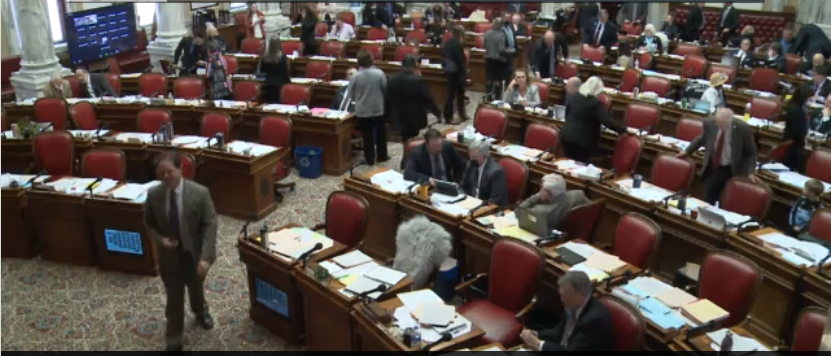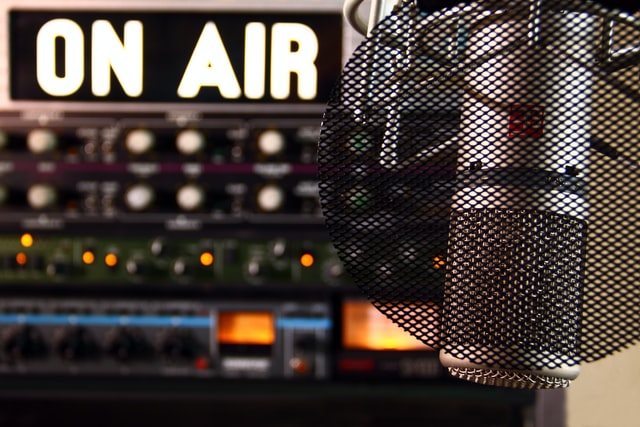April 18, 2021
COVID-19 Scare Forces Brief Pause in Legislative Activity
State Director Ronda Wiggers reports from Helena on the legislative and political week ending April 16
As I discussed in last week’s report, the session is winding down and we are now in a holding pattern. Working with staff and considering all of the public input that they have received to this point, the conference committee members now need to put the final pieces of the budget puzzle together.
They first need to determine what the COVID-19 relief money can be used for; then, this will be removed from the House Bill 2 budget; once the HB 2 numbers are clear, then they can address what tax cut bills the state can afford to pass. These, of course, are hinged on the determination of whether tax cuts are allowed under the federal guidelines for the relief money.
Once these numbers are determined, the rest of the puzzle will fit together quickly. Toss in a few days of quarantine and you have a fairly uneventful weekly report. So, rather than continue to report that we are waiting and watching, unless there is a big change to report, this will be the final weekly update until Sine Die. This is expected next week.
At the bottom of this report is a short synopsis of two bills:
- The first is House Bill 655, marijuana laws. This is the bill that deals with employee drug testing. As this has been tied up in all of the marijuana bill debates, I have just monitored its progress to ensure that employers will be able to terminate an impaired worker.
- The second is a bill on employing youth.
NFIB-Supported Bills Still in the Process
- House Bill 303, business equipment tax laws: The Business Investment Grows (BIG) Jobs Act is part of Gov. Greg Gianforte’s Montana Comeback plan that increases the exemption to business equipment taxes from $100,000 to $200,000
- Senate Bill 159 Personal Income Tax Relief Act. This is also part of the governor’s tax plan and reduces the top income tax bracket from 6.9% to 6.75% – the House Tax committee amended the bill to reduce the rate to 6.5%, but it is now sitting in House Tax waiting to learn how it fits in the final tax package.
- UPDATE: This was TABLED in House Tax, in favor of SB 399 (see below) All of the language in this bill is contained in the more comprehensive SB 399.
- SB 182 would generally revise laws on state finance, reducing tax rate if condition met. The measure is also part of the governor’s tax package. This is the “trigger bill” that sets parameters for continuing to lower the top income tax rate until it reaches 5%. It has passed the Senate and 2nd reading in the House and is sitting in Appropriations Committee waiting to be a piece of the final puzzle.
- SB 260 would revise laws related to property interests and transfer of businesses. This is a bill that guarantees a business is reimbursed for a government taking, even if it does not result in 100% loss or involves a license or intangible property. It is waiting for 2nd reading on the House floor.
- UPDATE: This bill died on the House floor, primarily due to the expected associated costs.
- SB 399 would revise and simplify income tax. This bill simplifies Montana’s tax return and bases our taxable on the federally adjusted amount. It lowers the top tax bracket to 6.5%, but it also eliminates a number of tax credits and makes tip income taxable as it is at the federal level. It has passed the Senate and is beginning its tour through the House. It does not conflict with the governor’s tax package and is being carried by the same sponsor.
Bills NFIB is Monitoring
NFIB took no official position on the following bills during the session for a variety of reasons. We do monitor these and report the final outcome so that you are aware of potential changes to the law.
- HB 158 would create a study commission to review COVID-19 statute and rule suspensions. This study will look at the emergency rules that were put in place and determine if some of them should be allowed to remain. This bill was amended in the Senate committee so it will need to first pass the Senate floor and then return to the House to have the amendments accepted.
- HB 472 would revise liability under the consumer protection act. This bill limits treble damages in a civil liability action (under the consumer protection act) to only awards of less than $100,000 and dis-allows attorney fees if over $100,000 is awarded. This bill was heard in Senate Business and the attorney on the committee wrote an amendment to clean up and clarify the language a bit. It is now waiting for executive action.
- UPDATE: This has passed out of Senate Business and passed the Senate. The House must now accept the Senate amendments.
- HB 555 would revise civil liability laws on personal property exempt from execution. This bill increases the value of personal property that is exempt from a judgment to adjust for inflation. This has passed both the House and the Senate and been returned to the House with a friendly amendment.
- UPDATE: The House rejected the amendment and the bill is now in a conference committee.
- HB 624 would establish a business task force on child care. This was heard in Senate Business and passed. It is awaiting Senate floor debate.
- HB 629 would provide for job creation tax credits. This measure would provide a tax credit for businesses that increase their employee count by 10 in the first year and 15 in the second year for job positions that pay at least $50,000 per year and are in the sectors of construction, natural resources, mining, agriculture, forestry, manufacturing, transportation, utilities or outdoor recreation. For counties with populations of less than 20,000, the job growth requirement is 5 the first year and 7 the second year. This bill has passed the House and is just beginning its’ travels through the Senate.
- HB 632 would implement receipt of and appropriate federal stimulus and Covid recovery funds. This bill will likely have a number of changes before its final version. It has been through the process in the House and had its committee hearing in the Senate.
- UPDATE: The Senate passed its version and the House now needs to reject the Senate amendments so that it can go into conference committee in order to complete the puzzle.
- SB 184 Montana Entrepreneur Magnet Act. The final bill in the governor’s tax package has passed both the Senate and the House and been returned to the Senate for approval of the House amendments.
- SB 361 would revise laws to establish a certificate of rehabilitation. This was heard in the House Judiciary Committee over two weeks ago and is still awaiting committee action. The Chamber has opposed versions of this bill in the past. This session, it has been watered down enough that it simply allows a convicted criminal, who has served their time, to apply for the certificate and does not require an employer to do anything out of the ordinary.
- UPDATE: This bill was amended in House Judiciary but it has not yet been heard on the House floor. The amendments deal primarily with the conduct necessary to obtain the certificate.
- SB 367 would revise labor laws relating to independent contractor certification. In the past, DOL has determined that if there is no IC certification, you are absolutely an employee. This conflicts with case law, and this bill proposes to say that it is NOT absolute proof and that other factors may be considered. It also moves the burden of proof on the person claiming to have an IC, rather than the employer. It has passed the House with amendments, so it will need to go back to the Senate for approval of the amendments.
Two New Proposals
- HB 655 would revise marijuana laws. This bill is currently in the Senate Select Committee on Marijuana. If passed:
- it eliminates the right of rebuttal for an employee who tests positive for marijuana and does not hold a medical card
- changes the right of reasonable explanation law to exclude non-medical marijuana
- disqualifies an employee from benefits after being discharged if they are discharged for failing or refusing to take a drug test that complies with federal and state drug testing statutes
- adds to law that if, after an accident, the employee refuses to take a drug test administered according to federal and state law, it is presumed the accident was caused by the use of illegal drugs for insurance purposes.
REMEMBER – Not every employee is subject to random drug testing. This bill would not change the law on when an employer can drug test. You can read the full text of the bill by clicking on the title.
- HB 282 would revise labor laws relating to the employment of minors. This bill has been signed into law by the governor. It creates the definition of a “student employee” to allow students 16 years of age or older to work under the direct or close supervision of an experienced person in jobs that were previously off-limits to minors, such as:
- manufacturing explosives
- logging and sawmills
- operating power tools
- metalwork
- mining
- freight elevator
- slaughtering and meatpacking
- operating power-driven bakery equipment
- brick and tile work
- excavation
- roofing
- agriculture
- others occupations
The thought behind this is that it may give students exposure to trades that they are currently not allowed to work during the time in their life when they are determining their future career and study path. Again, by clicking on the title, you will be linked to the full text of the bill.
Previous Reports and Related News
- February 1—Governor Releases ‘Montana Comeback Plan’ – NFIB-backed Liability Protection Bill Advances

NFIB is a member-driven organization advocating on behalf of small and independent businesses nationwide.
Related Articles


















